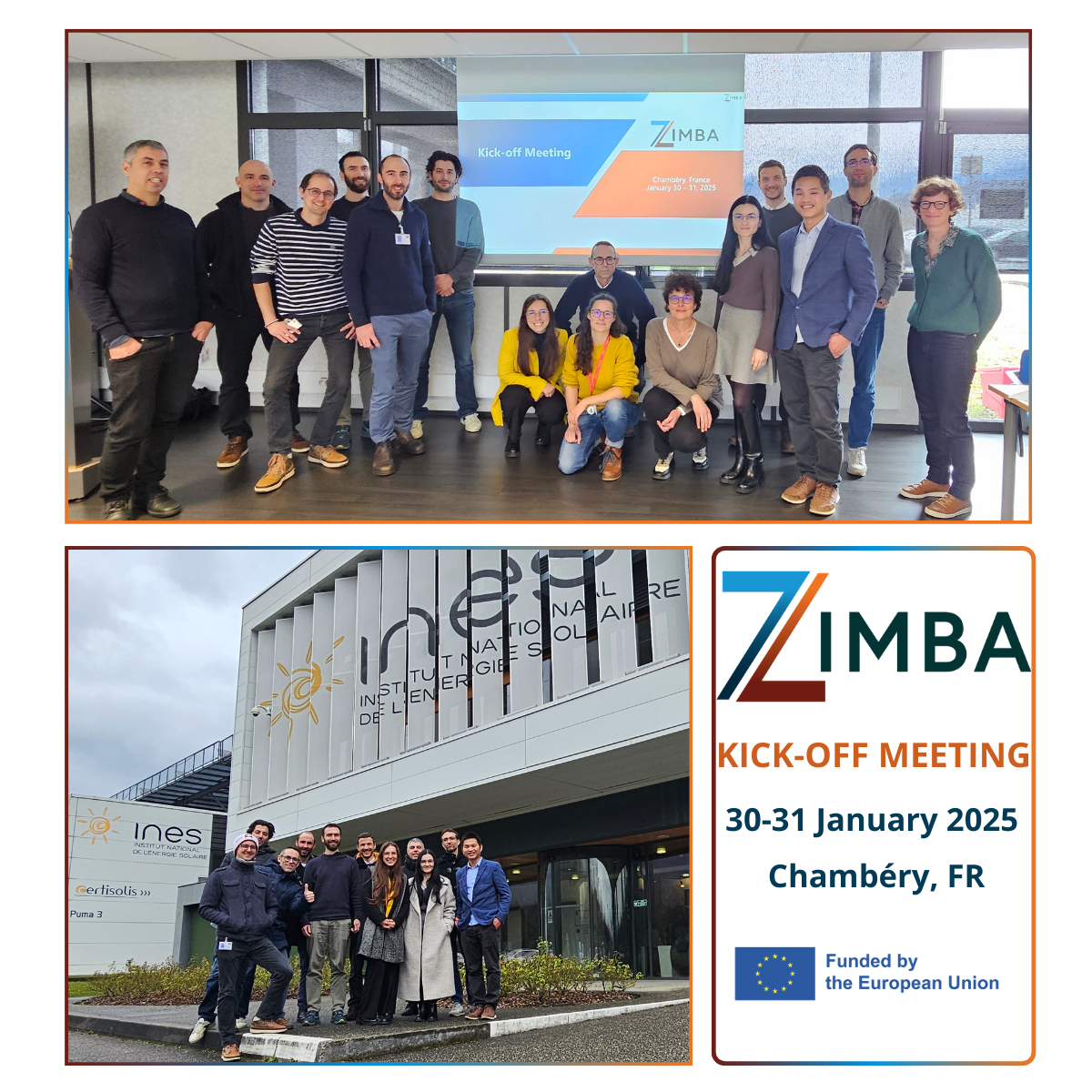
ZIMBA project kicks off with successful meeting in Chambéry
10.02.2025
The ZIMBA project officially launched with a successful kick-off meeting held on January 30–31 at the CEA premises in Chambéry, France. The event brought together a consortium of five partners from four EU countries: CEA (France), Politecnico di Milano (Italy), Clauger (France), AMIRES (Czech Republic), and OST (Switzerland). This diverse and experienced group gathered to initiate a collaborative effort aimed at revolutionizing industrial heat recovery.
The main objective of the ZIMBA project is to develop and validate an innovative heat pump at Technology Readiness Level 4 (TRL4), designed to operate at a 15kWth scale. The system will be based on an Absorption Heat Transformer (AHT) using an ammonia/water refrigerant mixture and enhanced with an ejector, allowing for a broader range of operational capacities. Initially, the system is intended to deliver heat at 110 °C, with a future target of reaching up to 130 °C to meet the demanding requirements of industrial processes.
Funded by the European Climate, Infrastructure and Environment Executive Agency (CINEA), the ZIMBA project will run over the next four years. It aims to contribute significantly to energy efficiency improvements and decarbonization efforts by enabling the recovery and reuse of industrial waste heat.
The kick-off meeting featured productive discussions, strategic planning, and a strong spirit of collaboration among the partners. The agenda also included a guided tour of CEA’s facilities, providing participants with valuable insights into advanced technologies that will support the project’s objectives.
Special guests included CINEA’s project officer, who offered important guidance regarding the project grant and its framework, and members of the External Advisory Board, whose expertise will further enrich the consortium’s work.
With a solid foundation now in place, the ZIMBA project is set to deliver groundbreaking advancements in industrial heat recovery. Further updates will follow as the project progresses.